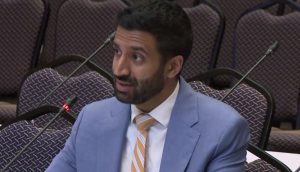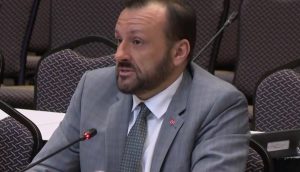Torstar, Postmedia, The Globe and Mail, The Canadian Press and CBC/Radio-Canada have filed an action against OpenAI, creator of ChatGPT. Aside from a joint statement from the coalition of publishers, Torstar and The Globe and Mail, offered no further comments. The coalition’s external law firm of Lenczner Slaght is handling all media requests on this matter.
At issue is content scraping, a tactic OpenAI is using to harvest news articles to train its ChatGPT software. The suit was filed in Ontario’s Superior Court of Justice on Friday morning and seeks damages and profits made by OpenAI using the news articles. It also requests an injunction barring OpenAI from using any of the news organizations’ articles in the future.
Robin LeGassicke, chief transformation officer for Cairns Oneil, is not surprised that this lawsuit is happening since there has been a lot of conversation and controversy over the data used to power and teach AI applications. She says most of these AI models have been trained on or leverage a deep database of information secured from the billions of web pages that the AI has scanned and ingested.
“Many of these websites, and specifically the news sites, are copyrighted. There were no permissions asked for or given to create the models from this data. Canadian News outlets need to continue to protect themselves to ensure the future of Canadian journalism and media. I think this is one way they look to ensure that protection is there.”
LeGassicke adds that this will be interesting to follow and see how it plays out. “There may be a ripple effect on data ownership, copyright laws and what’s considered open source or owned by an individual or organization. It may have impact on how organizations are using Gen AI tools and ensuring that the information put into the tools remains their property.”
The statement from the publisher group reads in part: “The content that Canadian news media companies produce is fact-checked, sourced and reliable, producing trusted news and information by, for, and about Canadians. This requires significant investment, and the content produced by news media companies is protected by copyright. News Media Companies welcome technological innovations. However, all participants must follow the law, and any use of intellectual property must be on fair terms.”
Lakshmi Radhakrishnan, director of performance at Involved Media, Canada has agrees with the litigation by news organizations around the world seeking compensation from OpenAI for the use of published work in training ChatGPT. “AI systems need to work on transparency to disclose their sources for training data. There’s a need for defining what constitutes fair use vs. infringement and these legal battles and new laws as a result will reshape how AI platforms interact with copyrighted materials which will balance innovation with IP protection.”
























